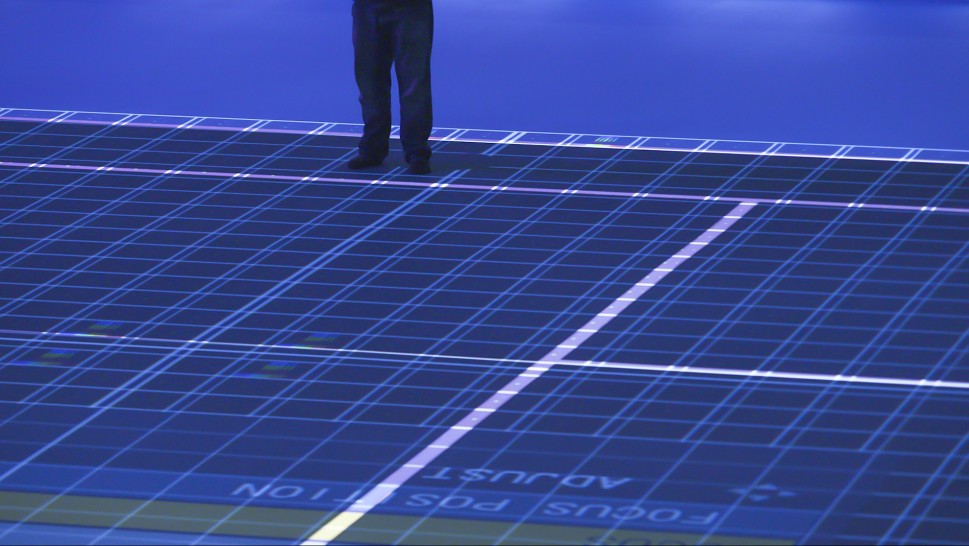
Subject to Review
$15 Special Event Tickets
US, 2019, DCP, color, 37 min.
DCP source: ESPN/Disney
Everything documentarian Theo Anthony (b. 1989) touches turns into wildly entertaining and mind-expanding gold. He first thrilled audiences at the Harvard Film Archive in 2018 with his unpredictable, multifaceted feature debut Rat Film (2016) and returns this year with his improbably ESPN-commissioned short Subject to Review paired with an equally provocative film of his choosing, Simon Starling’s Black Drop. As a Radcliffe-Film Study Center Fellow, Anthony is following up his recent exploration of surveillance culture and visual bias All Light, Everywhere (2021) with a new project that begins in Chicago’s sewer system and will undoubtedly enter into unforeseen, illuminating territory.
Subject to Review is a case study on the rise of the instant replay system Hawk-Eye in professional tennis, charting how a broadcast gimmick became de facto judge, jury, and executioner within the sport. Beneath this investigation, however, pulses deeper questions of spectacle, justice, and the inescapable horizon of imperfect knowledge that seep out from the edges of Hawk-Eye’s totalizing frame. Originally broadcast for ESPN’s 30 for 30 series, the film turns the traditional sports documentary on its head with Anthony’s signature combination of poetic observation, humorous subversion and political conscience.
In 1783, scientists from all across the globe raced to the edges of empire with cutting-edge instruments to record one of the rarest of celestial events—the Transit of Venus. Though the measurements produced were largely useless, these instruments, which recorded a series of sequential images in a single film strip, were the direct predecessor to the moving image camera. 130 years later, artist and filmmaker Simon Starling traveled to Tahiti and Honolulu to film the Transit again in 35mm black and white. With the next transit occurring in 2117, this could likely be the last recorded on film—tying a nascent cinematic language to a lineage of scientific inquiry and all the messy questions inherited along with it.












